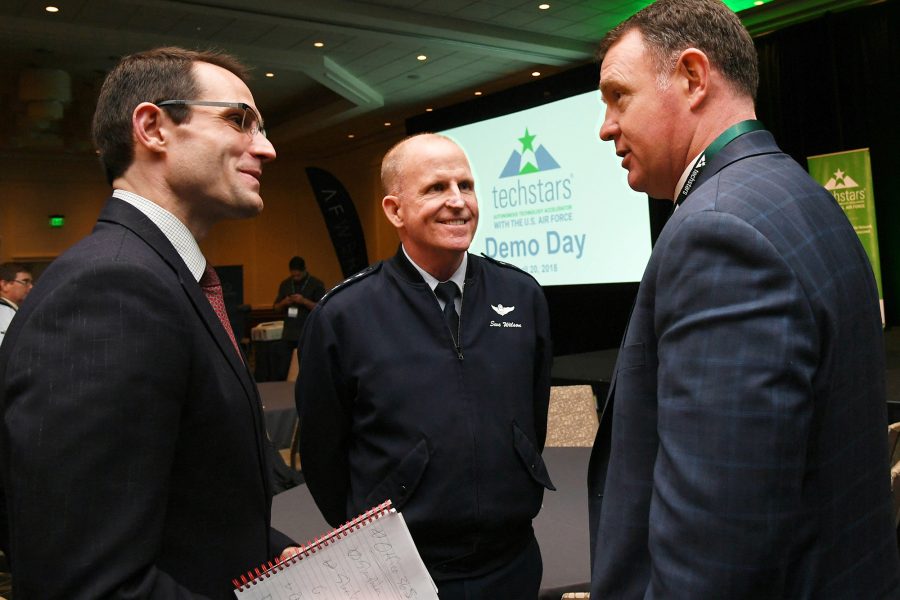An Air Force-affiliated technology accelerator on Jan. 24 named the startups chosen to participate in 2020, the third group since 2018.
The “Air Force Accelerator Powered by Techstars” program picks small businesses that offer products that can benefit troops as well as a broad swath of the commercial market. Those companies get exposure to military customers and larger defense contractors, and speed the time it takes to nab a government contract.
“The program launched with the goal of connecting the Air Force to early stage commercially oriented startups with innovative technologies, and adapting Air Force business processes to match the commercial world—instead of turning startups into full-fledged defense contractors,” Techstars, which offers seed funding to startups and facilitates tech accelerators, said in a release.
The organization provides a $100,000 convertible note, which acts as a loan that becomes equity in the company, to each participant. It contributes $20,000 to each company to use for living expenses or other needs, and holds stakes in the company until they raise $250,000 or more.
Participating companies also get personal mentorship, networking opportunities, legal and accounting support, and more.
The Air Force Research Laboratory, Air Education and Training Command, the National Security Innovation Network, AFWERX, the office overseeing reconstruction of Tyndall AFB, Fla., and BAE Systems FAST Labs are sponsoring the 2020 accelerator. Its three-month session begins Feb. 10 and ends with a demonstration day on May 7.
Products in development focus on sensors, human-machine interfaces, high-performance materials science, computation, cybersecurity, digital image processing, and electrical engineering innovation.
This year’s crop and their ideas include:
- Beagle Learning—group problem-solving and strategy training technology
- Lauretta.io—autonomous property management software
- Mesodyne—compact power generators that give autonomous systems 10 times the endurance
- MSBAI—artificial intelligence tools for engineers
- PeakMetrics—data analytics software
- Southie Autonomy Works—software that teaches robots how to perform new tasks through AI
- Spiral Technology—augmented reality technology for industrial settings like engine inspections and maintenance
- Target Arm—drone launch and recovery
- VeriTX—platform for selling digital and physical assets, and handling maintenance and leasing records
- Vermeer—augmented reality for drone video footage
Twenty companies have worked with the accelerator so far, and all but one have later received Small Business Innovation Research contracts through AFWERX and AFRL. Those awards total more than $20 million.
